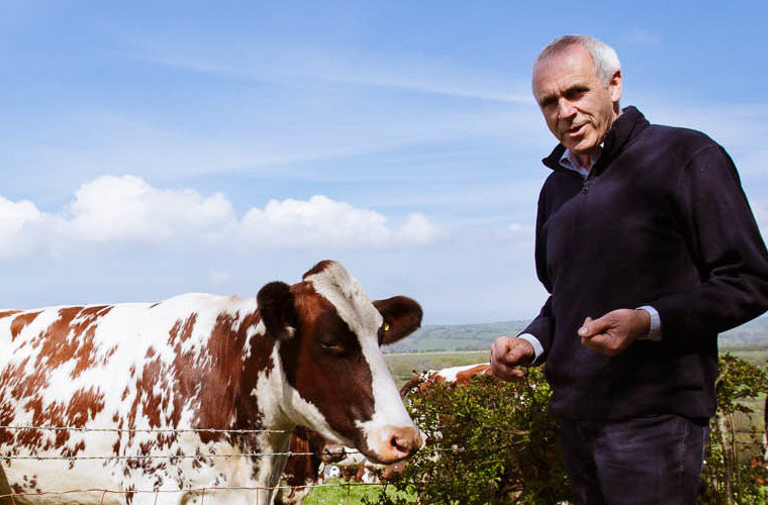Last week, I spent what I must admit to have been two rather depressing sessions participating in a Zoom conference convened by the Climate Change Committee (CCC) in order to share their vision and strategy for reaching net zero emissions by 2050, with a particular focus on the role of land use and agriculture.
Outside of food and farming, much of what the CCC are proposing seems eminently reasonable. It’s the kind of thing one would imagine – a massive and rapid move towards renewable energy generation, moving away from internal combustion engines, improving building insulation to reduce energy loss, reduction in car travel and slowing of demand for flights. But when it comes to land use, farming and food, in my opinion, they’ve got it completely wrong.
A rather crude summary of what they’re envisaging includes the following – a very significant increase in agricultural biofuel production; 10% of the farmed area planted with trees; an increase in afforestation rates to at least 30,000 hectares per year across the UK by 2025 and an average of 40,000 hectares per year in the 2030s, plus a ‘land sparing’ agenda including dramatic increase in yields from arable crops, a significant reduction in livestock including ruminants, and no presumption of any increase in soil carbon.
To add insult to injury, on the diet side, they propose a significant switch towards plant-based diets without making any differentiation between livestock which are part of the problem (intensive chickens, pig and dairy units) and those which are absolutely a necessary part of the solution (mainly grass-fed beef, lamb and dairy cows).
I gained the impression, perhaps unfairly, that none of the so-called experts who were presenting had any practical knowledge of, or insights into, regenerative farming. This was illustrated in their answer to a question that I and others raised about the potential to increase soil carbon levels as part of the contribution towards emission reduction levels achieved by CO2 sequestration in soils. Their response was that they saw no potential for increasing the organic matter in arable soils, largely because their presumption was that they would continue to be under continuous arable production which, according to their predictions, would be able to very significantly increase yields through a combination of plant breeding and precision application of fertilisers and pesticides. Conversely, with grassland, they saw no potential for any further sequestration on the 60% of the farmed land area which is currently under pasture, presumably because they are listening to the current orthodoxy about the maximum potential of grasslands to act as a carbon bank.
Instead, their recommendation was to annually and incrementally remove what would probably amount to around 20% of the agricultural area of farming by 2050. This land would instead be used to produce biofuels, woodland and commercial afforestation. Adopting this ‘land sparing’ approach would definitely necessitate agricultural intensification on the land left in food production, but they seemed to take no account of the impact on biodiversity, on the increased emissions from agricultural intensification or any potential negative impacts on food quality and safety and human health.
Judging from the Q&A and chat functions, a clear majority of the listeners not only challenged some of their assumptions but also raised deep concerns about their overall approach. However, these no doubt well-intentioned leading academics seemed to take virtually no account of the concerns and questions raised. What struck me forcibly, especially in relation to their proposals for Wales, which would definitely have a pretty devastating effect on the rural farming communities of the principality, is that it is completely at odds with the White Paper published by the Welsh Government last week outlining their proposals for post-Brexit sustainable farming schemes.
Although one couldn’t quite say the same for England, since we do not yet know exactly what the ELMs scheme will look like, Defra themselves described ELMs as a ‘land sharing’ approach. It’s pretty clear to me that there has been little or no in-depth consultation between the Climate Change Committee and Defra and the equivalent devolved nations agriculture policy teams in the preparation of their report.
This brings a question – how much weight will the Government attach to Climate Change Committee recommendations? Obviously, I don’t know the answer, but I can speculate that they are likely to be strongly influenced by it, which is all the more worrying for the future of British farming. We already knew that we were facing the combined threats of Brexit, climate change, biodiversity loss, Covid-19, and an all-time low in the economic returns from our current production systems. But now we can add the recommendations of the Climate Change Committee as an additional existential threat to our future. This is ironic indeed when more and more people are recognising that regenerative agriculture, if applied at a national scale, could result in the sequestration of up to a 1% of soil organic matter (C levels), thus making a very significant contribution towards meeting emission reduction targets.
Hopefully these issues will be debated over the coming weeks and months since, as stated above, I do not doubt the good intentions of the climate change modellers. But it seems to me that their recommendations have not benefitted from any significant engagement with that section of the farming community who are 100% committed to a transition to regenerative farming systems.





